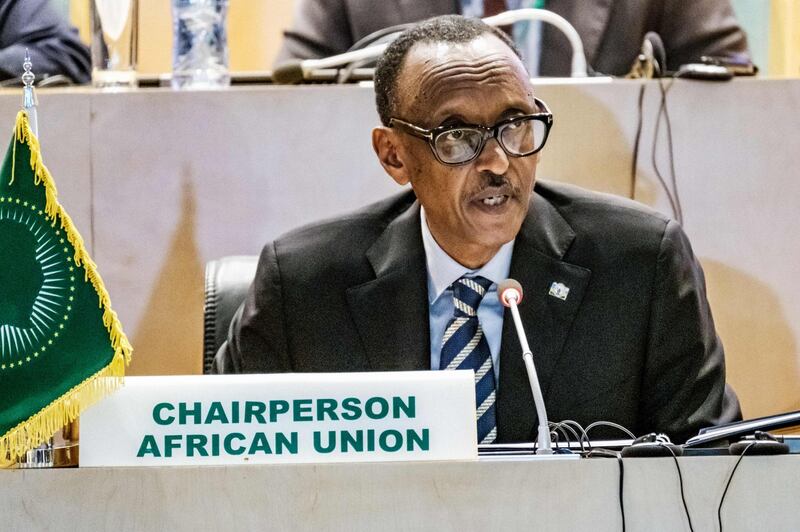The African Union called for a suspension of the proclamation of Democratic Republic of Congo’s presidential election results, saying there were “serious doubts” about their veracity.
The continental body’s surprise request comes as Congo’s highest court considers opposition leader Martin Fayulu’s bid to overturn the outcome, which he says was rigged in rival candidate Felix Tshisekedi’s favour.
Mr Fayulu’s claims are backed by the country’s Catholic Church and leaked electoral-commission data showing that more people voted for him than for Mr Tshisekedi.
“This is a historic unprecedented intervention by the African Union to secure a democratic transition,” Bronwyn Bruton, deputy director of the Africa Centre at the Washington-based Atlantic Council, said on Twitter.
The African Union is urgently dispatching a high-level delegation to Congo to help resolve the country’s post-election crisis, it said after heads of state and government met in the Ethiopian capital, Addis Ababa, on Thursday. The mission was announced before the Constitutional Court was scheduled to rule on Friday on Mr Fayulu’s challenge.
Officials who met in Addis Ababa concluded that there were “serious doubts on the conformity of the provisional results, as proclaimed by the National Independent Electoral Commission, with the votes cast”, the African Union said. “Accordingly, the heads of state and government called for the suspension of the proclamation of the final results of the elections.”
If the Constitutional Court validates the electoral commission’s poll figures, Mr Tshisekedi will succeed Joseph Kabila, who was barred by the constitution from seeking a third term after leading the mineral-rich country for almost 18 years.
Mr Fayulu accuses Mr Tshisekedi and Mr Kabila of having struck a secret agreement to deprive him of the presidency — a charge denied by both camps. Mr Kabila’s anointed successor, Emmanuel Ramazani Shadary, came third in the poll, while Mr Fayulu was backed by Moise Katumbi and Jean-Pierre Bemba, two of Mr Kabila’s biggest adversaries.
_______________
Read more:
[ DR Congo: Regional blocs call for vote recount as crisis rolls on ]
[ A series of disputed elections show the myriad ways in which democracy's rules are being warped ]
_______________
The Congo Research Group this week published leaked data it said show Mr Fayulu won the election by a large margin. The figures include a near complete tally of results from the Congolese National Independent Electoral Commission’s database, and a second more partial set gathered by an almost 40,000-strong observer mission run by the Catholic Church on election day, the New York-based organisation said.
“The results contradict those published by the election commission,” the CRG said on its website. “These two documents suggest that the elections were dramatically rigged in the favour of Felix Tshisekedi.”





